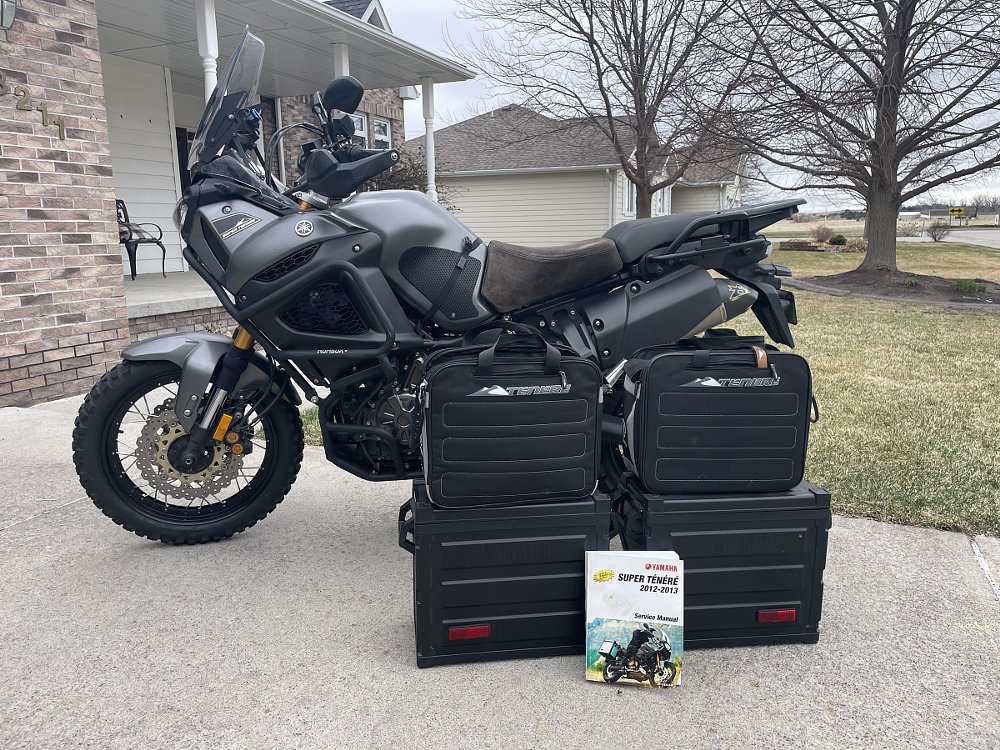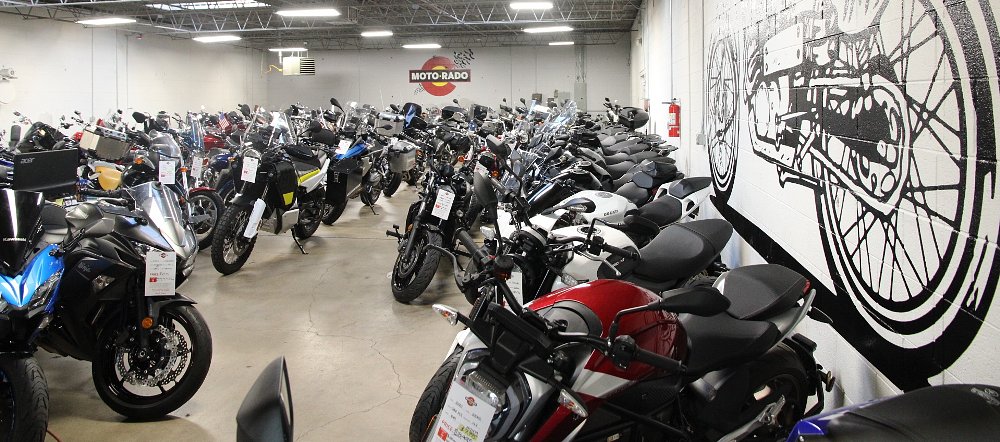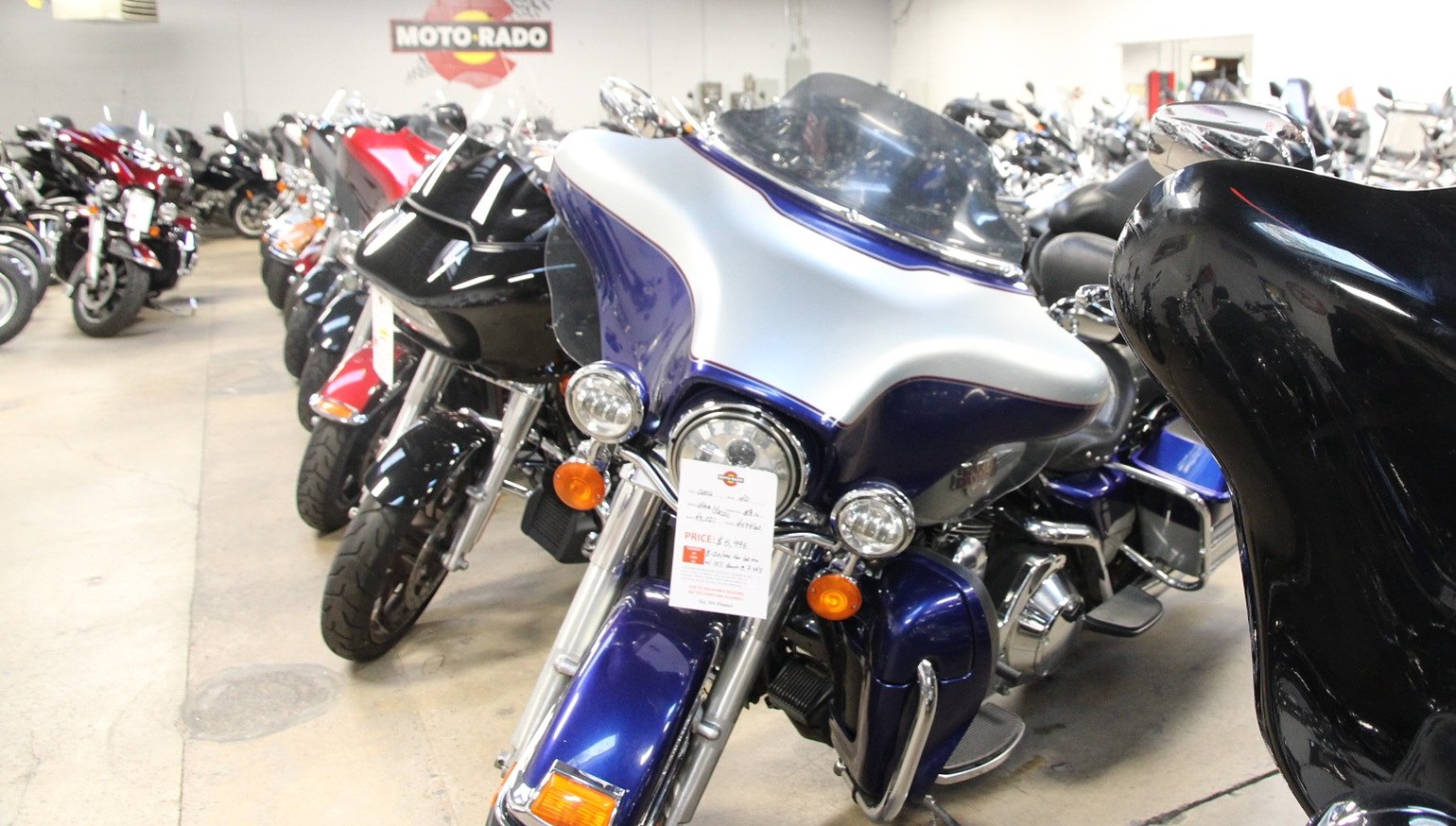Sooner or later, we all need to sell a motorcycle, if only to make room for something different in the garage. The two usual routes are selling it ourselves, usually by posting ads online, or trading it in at a dealership. But there's another option that is often overlooked.
For the right rider and situation, selling your motorcycle on consignment can be the best solution. Consignment is basically paying someone else to sell your bike for you. There are dealerships that deal exclusively in consigned motorcycles and there are other dealers who will take bikes on consignment and and put them on their showroom floors alongside their new and used inventory.
Consignment-specific dealers will generally take any bike that's functional, road-worthy (if it's intended to be street-legal), and basically safe to ride. Traditional dealers will sometimes have a more restrictive approach, like requiring the title to be free of liens, the motorcycle to be in line with their retail brands, or they may only offer the service to customers they know well. Each dealer is different and sets their own rules for whether and under what circumstances they will consign a bike.
What makes consignment an option worth considering? It removes a lot of the hassle of selling the bike yourself. The dealerships will list your bike not only on their own website, but will often list them in the usual places people go to shop, such as Craigslist, Facebook Marketplace, and Cycle Trader. If the ads need renewing, they will handle that too.
A dealership will also get significantly more foot traffic than your garage. On top of that, the sales staff is available whenever the dealership is open. Dealerships also offer an increased level of safety to both buyers and sellers. No meet-ups in desolate parking lots or giving your address to strangers. No dealing with large sums of cash. No haggling with online low-ballers and wading through scam texts.
There are positive financial aspects of consignment, as well. Most dealers, both consignment-specific and traditional dealers, offer financing. That makes it easier for a potential buyer to walk in, see your bike, and take it home right now with a reasonable payment and some of the peace of mind that comes with buying from a known dealer.
You'll also get more cash in your pocket from consigning than you would from a trade-in. Consignment dealers usually charge a commission based on the sale price of your bike, think roughly 10%, plus some nominal fees for conditioning the bike and advertising. If your bike is in good condition and clean, you can sometimes get the conditioning fee waived. So when your bike sells, you pocket the overwhelming majority of the final sale price.
Consignment selling is not a perfect solution. You won't get the same final amount of money that you probably would selling it yourself. While consignment dealers will work with you on the value of your bike, they are bound by what a bank will finance, if the buyer is borrowing to make the purchase. So, even if your bike has all of the farkles attached, adding thousands of dollars to its worth (you know what you have!), if the Kelley Blue Book value is $5,000, then that's the most the dealership can secure financing for.
If you decide to consign, do your due diligence. Make sure you're comfortable with the dealer's sales staff and how they will present your bike. Do they have the requisite knowledge to do your bike justice? Do they consistently move inventory similar to your bike? Does the dealer offer a guarantee of the minimum your bike can sell for? We all want top dollar for our machines, but don't forget about the possibility of a rookie salesperson negotiating the floor out of your bike's value if there's no backstop. Ensure that you're comfortable with their commission pricing and that you're OK with them taking 10% or more out of the final sale price of your bike. Make sure you're aware of all their fees. Ask about the dealership's test-ride policy for consigned bikes and whether you need to maintain insurance on your bike while it's in their possession. Ask how long they'll keep your bike on the floor and what their policy (and additional charges, if any) will be if your bike doesn't sell in that time frame. What if you decide to take it back early? Do the little things before delivering your bike to the dealer to make sure it looks and rides like it's ready to sell on a showroom floor.
Just like with every other major financial transaction, get it all in writing and know that nearly every dollar amount they quote you for this or that is negotiable. This is where consignment-specific dealerships can have an upper hand. They deal with this kind of transaction all of the time and generally have the kinks worked out while traditional dealers may not consign very often and may not have the paperwork up to your standard.

My consignment sale story
Here's how a consignment sale went for me. In March of this year, after attending a well-known adventure bike riding school, I realized my 2013 Yamaha Super Ténéré wasn't exactly what I wanted for my current riding style and goals. The Super Ténéré was my first foray into ADV riding and it was time to move on to something a bit more capable off-road.
I first took the standard route of taking good photos and listing the bike in the usual online places. The pricing was in line with what I was seeing in the real world. My bike was clean, well maintained (with records!), and appropriately farkled. It sat, with little response, for a few months.
Being generally impatient when I have a plan, I took it to the local dealer and speculated on a trade-in. I live in a small Midwestern town about a four-hour drive from any major cities and I know the owner of the local dealership. He surmised he wouldn't be able to give me anywhere near the money I was likely to get for the bike selling it on my own. When I relayed the lack of response to that point, he suggested consigning it in his dealership.
While I had not previously considered consignment, I decided to give it a try. We agreed upon a sale amount. I signed some paperwork with fees and commission laid out, provided them my service records and clear title, and left the Ténéré in their capable hands with a promise to leave it there for a minimum of 45 days.
I checked in occasionally to see how it was going and the sales staff told me there was some interest, but no takers. I started wondering if maybe my market (rural Great Plains) wasn't ideal for selling an adventure bike that was kitted with an off-road bias. As the 45 days came to a close with no sale, I had done my research and found a consignment-specific dealership in Lakewood, Colorado, (as I mentioned, about four hours away) that had a clear knowledge and selection of adventure bikes. I started communicating with them shortly before I returned to my local dealer, paid some light fees, and collected my bike.

Two days later, my Ténéré was loaded on my trailer and hauled to Denver for drop-off. The dealership staff was courteous and respectful. They went over the bike, asked about modifications, and inquired about how much I'd like to get out of the bike when sold. From there we negotiated a price that was feasible for them to list it (again, based on Kelley Blue Book for financing purposes) as well an amount they wouldn't go below when negotiating with potential buyers. They also told me the exact amount they would collect from the sale. I signed paperwork, paid a small listing fee (they waived the conditioning fee since my bike was showroom-ready), signed the title, unloaded the bike and handed over the keys. In about an hour, I was on my way. (They even gave my kids Popsicles before we left.)
Within two weeks, the Ténéré sold. The final price was right in the middle of the range we agreed on — a bit less than I was originally hoping to get when I first started the whole endeavor in March, but ultimately a fair price. About three weeks after that, I had a check in my hand and was ready to throw a leg over my next bike.
While consignment isn't right for every person in every situation, it was right for me and it was right for the bike I was trying to sell in that moment. The next time I get the itch to move a bike along, consignment will be part of the planning process.








